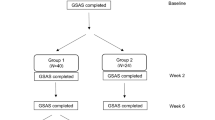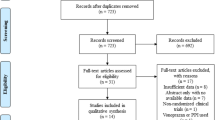Abstract
Since gastro-oesophageal reflux disease (GORD) is a prevalent condition characterised by frequent relapses, long-term costs of management for this disease are high. Thus, strategies to decrease resource expenditures without impairing patient quality of life are desirable. On-demand therapy (one-dose when symptoms occur) and intermittent therapy (short course of medication when symptoms occur) are attractive since pharmaceutical expenditures may be decreased, and many patients self-employ this strategy.
The purpose of this paper was to examine the economic implications of on-demand or intermittent therapy for GORD. A review of selected studies evaluating medication suitable for on-demand or intermittent administration was performed. A complete search for published studies on the cost effectiveness of on-demand or intermittent therapy for GORD was conducted, and the results discussed in detail.
Antacids, alginates, topically active agents, histamine2-receptor antagonists, and proton pump inhibitors have all demonstrable efficacy compared with placebo when administered on-demand. Proton pump inhibitors constitute the most effective pharmacological means to treat GORD. Although step-up strategies initially using less potent medication may decrease resource use, cost-effectiveness analysis illustrates that on-demand or intermittent therapy with proton pump inhibitors may be reasonable options. Further work that defines quality of life and patient preferences associated with GORD may allow for proper allocation of resources for the management of this condition.



Similar content being viewed by others
Notes
Use of brand names is for product identification purposes only and does not imply endorsement.
References
Sontag SJ. The medical management of reflux esophagitis. Role of antacids and acid inhibition. Gastroenterol Clin North Am 1990; 19: 683–712
Pharmacy Benefits Management Strategic Healthcare Group. Contract adherence national reports: Q4FY99. Washington (DC): Veterans Health Administration, Department of Veterans Affairs, 2000
Prescription cost analysis. London: Department of Health, 1997
Klinkenberg-Knol EC, Festen HP, Jansen JB, et al. Long-term treatment with omeprazole for refractory reflux esophagitis: efficacy and safety. Ann Intern Med 1994; 121: 161–7
Vigneri S, Termini R, Leandro G, et al. A comparison of five maintenance therapies for reflux esophagitis. N Engl J Med 1995; 333: 1106–10
Dent J. The role of the specialist in the diagnosis and short and long term care of patients with gastroesophageal reflux disease. Am J Gastroenterol 2001; 96: S22–6
Sonnenberg A, Inadomi J, Becker L. Economic analysis of stepwise treatment of gastroesophageal reflux disease. Aliment Pharmacol Ther 1999; 13: 1003–13
Inadomi J, Jamal R, Murata G, et al. Step-down management of gastroesophageal reflux disease. Gastroenterology 2001; 121: 1095–100
Boath EH, Blenkinsopp A. The rise and rise of proton pump inhibitor drugs: patients’ perspectives. Soc Sci Med 1997; 45: 1571–9
Hungin APS, Rubin G, O’Flanagan H. Factors influencing compliance in long-term proton pump inhibitor therapy in general practice. Br J Gen Pract 1999; 49: 463–4
Hungin APS, Rubin GP, O’Flanagan H. Long-term prescribing of proton pump inhibitors in general practice. Br J Gen Pract 1999; 49: 451–3
Grove O, Bekker C, Jeppe-Hansen MG, et al. Ranitidine and high-dose antacid in reflux oesophagitis. A randomized, placebo- controlled trial. Scand J Gastroenterol 1985; 20: 457–61
Weberg R, Berstad A. Symtomatic effect of a low-dose antacid regimen in reflux oesophagitis. Scand J Gastroenterol 1989; 24: 401–6
Lieberman DA. Medical therapy for chronic reflux esophagitis: long term follow-up. Arch Intern Med 1987; 147: 1717–20
Faaij RA, Van Gerven JMA, Jolivet-Landreau I, et al. Onset of action during on-demand treatment with Maalox suspension or low-dose ranitidine for heartburn. Aliment Pharmacol Ther 1999; 13: 1605–10
Weberg R, Berstad K, Berstad A. Acute effects of antacids on gastric juice components in duodenal ulcer patients. Eur J Clin Invest 1990; 20: 511–5
McHardy G. A multicentric, randomized clinical trial for Gaviscon in reflux esophagitis. South Med J 1978; 71: 16–21
Carling L, Cronstedt J, Engqvist A, et al. Sucralfate versus placebo in reflux esophagitis. A double-blind multicenter study. Scand J Gastroenterol 1988; 23: 1117–24
Laitinen S, Stahlberg M, Kairaluoma MI, et al. Sucralfate and alginate/antacid in reflux esophagitis. Scand J Gastroenterol 1985; 20: 229–32
Hameeteman W, Van der Boomgaard DM, Dekker W, et al. Sucralfate versus cimetidine in reflux esophagitis. A single-blind multicenter study. J Clin Gastroenterol 1987; 9: 390–4
Elm M, Hellke P, Andren K, et al. Time to relief of episodic symptoms of gastro-oesophageal reflux disease. Scand J Gastroenterol 1998; 33: 900–4
Johannessen T, Kristensen P. On-demand therapy in gastroesophageal reflux disease: a comparison of the early effects of single doses of fast-dissolving famotidine wafers and ranitidine tablets. Clin Ther 1997; 19: 73–80
Galmiche JP, Shi G, Simon B, et al. On-demand treatment of gastro-esophageal reflux symptoms: a comparison of ranitidine 75 mg with cimetidine 200 mg or placebo. Aliment Pharmacol Ther 1998; 12: 909–17
Wilhelmsen I, Hatlebakk JG, Olafsson S, et al. On demand therapy of reflux oesophagitis - a prospective study of symptoms, patient satisfaction and quality of life. Aliment Pharmacol Ther 1999; 13: 1035–40
Dent J, Yeomans N, Mackinnon M, et al. Omeprazole v ranitidine for prevention of relapse in reflux oesophagitis. A controlled double blind trial of their efficacy and safety. Gut 1994; 35: 590–8
Ladas SD, Tassios PS, Raptis SA. Selection of patients for successful maintenance treatment of esophagitis with low-dose omeprazole: use of 24-hour gastric pHmonitoring. AmJ Gastroenterol 2000; 95: 374–80
Lind T, Havelund T, Lundell L, et al. On demand therapy with omeprazole for the long-term management of patients with heartburn without oesophagitis — a placebo-controlled randomized trial. Aliment Pharmacol Ther 1999; 13: 907–14
Talley NJ, Lauritsen K, Tunturi-Hihnala H, et al. Esomeprazole 20 mg maintains symptom control in endoscopy-negative gastro-oesophageal reflux disease: a controlled trial of “ondemand” therapy for 6 months. Aliment Pharmacol Ther 2001; 15: 347–54
Arnestad JS, Kleveland PM, Waldum HL. In single doses ranitidine effervescent is more effective than lansoprazole in decreasing gastric acidity. Aliment Pharmacol Ther 1997; 11: 355–8
Khoury RM, Katz PO, Castell DO. Post-prandial ranitidine is superior to post-prandial omeprazole in control of gastric acidity in healthy volunteers. Aliment Pharmacol Ther 1999; 13: 1211–4
Stalhammar N-O, Carlsson J, Peacock R, et al. Cost effectiveness of omeprazole and ranitidine in intermittent treatment of symptomatic gastro-oesophageal reflux disease. Pharmacoeconomics 1999; 16 (5 Pt 1): 483–97
Bardhan KD, Muller-Lissner S, Bigard M, et al. Symptomatic gastro-oesophageal reflux disease: double blind controlled study of intermittent treatment with omeprazole or ranitidine. BMJ 1999; 318: 502–7
Goeree R, O’Brien B, Hunt R, et al. Economic evaluation of long term management strategies for erosive oesophagitis. Pharmacoeconomics 1999; 16 (6): 679–97
Gerson LB, Robbins AS, Garber A, et al. A cost-effectiveness analysis of prescribing strategies in the management of gastroesophageal reflux disease. Am J Gastroenterol 2000; 95: 395–407
Harris RA, Kuppermann M, Richter JE. Prevention of recurrences of erosive reflux esophagitis: a cost-effectiveness analysis of maintenance proton pump inhibition. Am J Med 1997; 102: 78–88
Wahlqvist P, Junghard O, Higgins A, et al. Cost effectiveness of proton pump inhibitors in gastro-oesophageal reflux disease without oesophagitis: comparison of on-demand esomeprazole with conventional omeprazole strategies. Pharmacoeconomics 2002; 20 (4): 267–77
Acknowledgements
Grant Support: Department of Veterans Affairs, Veterans Health Administration, Health Services Research and Development Service IIR 99-238-2 and American College of Gastroenterology Faculty Development Award.
Author information
Authors and Affiliations
Corresponding author
Rights and permissions
About this article
Cite this article
Inadomi, J.M. On-Demand and Intermittent Therapy for Gastro-Oesophageal Reflux Disease. Pharmacoeconomics 20, 565–576 (2002). https://doi.org/10.2165/00019053-200220090-00001
Published:
Issue Date:
DOI: https://doi.org/10.2165/00019053-200220090-00001




